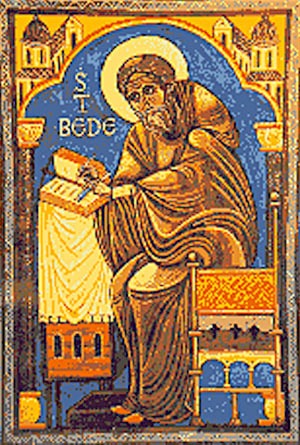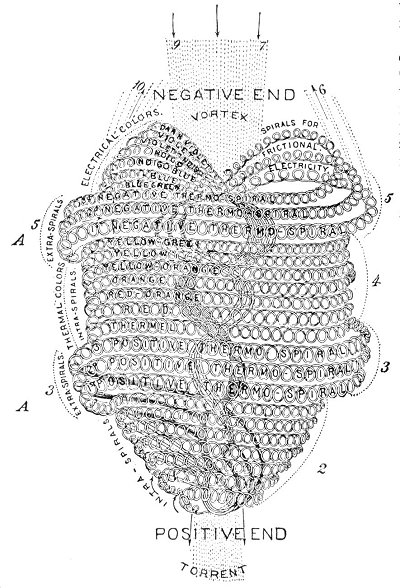Much weight is still attached to the argument, that as a tie uniting men—that, as a significant speech, symbolically speaking every language, and at the same time embodying in its constitution everything that is valuable, it should command respect. We meet this argument with facts that cannot be controverted. We put it on a basis that will fling into the back ground every quibble and artifice on the subject; and, in the language of a polemic writer, we challenge opposition to our position.
The religion inculcated by the Son of Man does all this;
p. vii
and in no possible situation can man be placed, that the benign influence of Christianity does not completely supersede the use of a mere human institution. Place a brother in a desert, unfriended and unknown,—leave him in a wilderness where human footsteps never printed the ground, the Divine Benefactor is at his side, and watches over him with parental guidance. Let him be driven on a barbarous coast, in the midst of savage men, and there it is that the breathings of the divine influence spreads around him its shield, brings him into civilized society—in the busy walks of men, and are we to be told, as members of community, sojourners on earth, and candidates for heaven, we must be taught our duty at a Mason’s lodge? Wherever Masonry exercises its influence with success, there Christianity can have, or should have a more powerful effect. Whenever Masonry claims “kindred with the skies,” and exalts herself above every living sublunary thing, then, with an unhallowed step, it obtrudes on the sacred borders of religion, and decks itself in borrowed garments.
Entrenched within these strong walls—decked with all the glitter of high sounding professions, claiming what does not belong to it,—it dazzles “but to bewilder and destroy.” In its train, in these United States, are enrolled many periodical works devoted to Masonry; and under the guise of patronizing mechanics—the arts and sciences—lend their aid to carry on the imposing delusion. They take up the specious title of throwing a little illumination on this benighted country, from their secret depositories. Arrogating to itself what should deck other’s brows—assuming to be the patron, the life and soul of all that is great and valuable—it deceives many of its votaries, and from its gaudy premises the most untenable and onerous conclusions are drawn.
Are we astonished at the wild and heedless manner in which many of the votaries of Masonry rush into every excess, putting at defiance the laws of our civil institutions, which suffer no one to put in jeopardy, but by due forms, and disregarding the command of the Most High, which says, “Thou shalt not kill?”—we can readily trace the cause to the impressions and practices obtained from its false tenets and descriptive arrogance. Masonry is to the modern world what the whore of Babylon was to the ancient; and is the
p. viii
beast with seven heads and ten horns, ready to tear out our bowels, and scatter them to the four winds of heaven. Masonry gives rogues and evil-minded characters an opportunity of visiting upon their devoted victim, all the ills at tending combined power, when exerted to accomplish destruction. It works unseen, at all silent hours, and secret times and places; and, like death when summoning his diseases, pounces upon its devoted subject, and lays him prostrate in the dust. Like the great enemy of man, it has shown its cloven foot, and put the public upon its guard against its Secret machinations.
This part of the subject requires no further discussion either by way of ridicule or downright sincerity, but the remark which cannot be too often reiterated, that the world, in its present advanced state, requires no such order for our social intercourse; and when the Masonic mania prevails as it now does in this country, we are exalting a mere human ordinance, with its useless trumpery and laughable accompaniments, for the sublime and unadorned lessons of Heaven.
To some men it is galling and mortifying in the extreme to give up their darling systems. With the increase of years their fondness becomes so great that they cling to them with wild and bewildered attachment. But we would ask them, where now are the Knights of Malta and Jerusalem, and the objects that called forth their perils and journeyings? Where are the crusades and excursions on which our Grand Commanders, Generalissimos and Sir Knights are to be engaged . . . . . . . . . In no other excursions than Cervantes describes of his redoubtable hero Don Quixote. The days and occasions that called forth these deeds of chivalry and valor have passed like those before the flood; and the mock dignitaries and puppet show actions of Masons in their imitation call forth pity and indignation. When we now see the gaudy show in a lodge-room, and a train of nominal officers with their distinction and badges, it may give us some faint idea of scenes that are past, and may gratify an idle curiosity, but produces no substantial good under heaven. When monasteries and cloisters, and inquisitor’s cells and prisons have been broken up before the sweeping march of the moral mind, why this unnecessary mummery should be so much countenanced in this country, above all other

Moe is the founder of GnosticWarrior.com. He is a father, husband, author, martial arts black belt, and an expert in Gnosticism, the occult, and esotericism.



